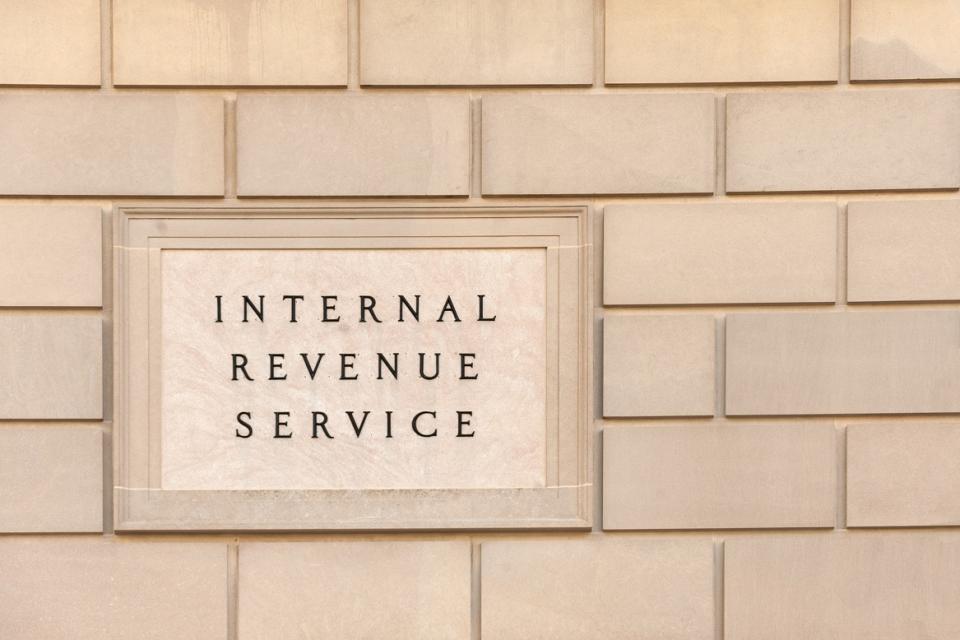Warren Buffett's Big Gift From the U.S. Government
Investors know that tax reform has played a major role over the past year in the performance of the companies whose shares they own. Even as individual investors are only now starting to see how much money they've saved under the new tax laws -- or whether they might actually owe more -- the impact of corporate tax cuts has been clear for more than a year now.
Yet sometimes it takes a simple explanation to make it clear exactly how much something matters to a company. Berkshire Hathaway (NYSE: BRK-A) (NYSE: BRK-B) CEO Warren Buffett loves to give simple explanations of key concepts to his investors every year in his annual letter to shareholders. This year, one of the things he noted was just how important tax reform was to the insurance giant's overall results -- and the long-term intrinsic value of the company.
How taxes helped double Berkshire's profit growth
Berkshire Hathaway relies heavily on noninsurance businesses as its best growth opportunities, and 2018 was a strong year for the companies in which Buffett invested. In total, Berkshire's noninsurance businesses generated a total of $20.8 billion in pre-tax profit last year. That represented a sizable growth rate of 24%, with acquisitions having a negligible impact on the total. In other words, almost all of that 24% increase came from organic growth among Buffett's existing group of noninsurance businesses.

Image source: Getty Images.
However, when you look at the impact of tax reform, you'll see that Berkshire's growth rate was much higher when you measure it on an after-tax basis. Buffett reported in the shareholder letter that after-tax gains on Berkshire's noninsurance operations in 2018 rose at a 47% rate. That's almost double the company's pre-tax growth in the bottom line.
Uncle Sam's stake in Berkshire
To explain what happened, Buffett used an analogy that any shareholder should understand. The Berkshire CEO characterized the federal government as an "owner" of a stake in Berkshire's earnings. As he described it, the interest that the government has entitles it to "dividends" -- in other words, tax payments -- proportional to the current corporate tax rate.
When the corporate tax rate was 35%, the value of the government's stake in Berkshire's profits was relatively high. Even with efforts to minimize the company's tax bill, Berkshire nevertheless paid billions of dollars each year to the IRS in taxes.
However, when lawmakers cut the corporate tax rate from 35% to 21%, it reduced the value of the federal government's claim on Berkshire's earnings. The 14-percentage-point reduction amounted to a 40% tax cut, and that means that 40% less of Berkshire's income was going to the government in the form of taxes. Conversely, that left a much larger share to go to regular investors.
Some offsetting impacts
That said, Berkshire shareholders didn't get to keep all of the benefits of tax reform. Buffett noted some exceptions:
Berkshire already received preferential tax treatment on the dividend income it received from many of its domestic investments, and tax reform didn't change that treatment significantly.
Berkshire holds considerable investments in utility companies, and rate-making regulators generally took tax reform into account by forcing utilities to pass on the savings from lower taxes to their customers.
Even with these offsets, the total benefit to Berkshire was considerable. Yet Buffett was quick to dismiss the current-year impact by talking about something even more valuable: the long-term benefit to shareholders.
Boosting Berkshire's value
Because the corporate tax rate reduction was a permanent move, tax reform didn't just help Berkshire for a single year. Going forward, taxes will remain at this rate unless they're changed by lawmakers in the future.
That in turn boosted the intrinsic value of Berkshire's stock, in that less of the company's future earnings will go to the federal government. As Buffett reminded his shareholders, it also boosts the intrinsic value of all the stocks that Berkshire holds -- further enhancing the company's overall prospects.
For many investors, the value of tax reform was evident in the short-term earnings boosts that their stocks saw. But for Buffett and Berkshire Hathaway, the real boon from tax reform came from the long-term positive impact it had on the company's intrinsic value. That's a lesson that applies not just for shareholders in Berkshire but for stock investors in U.S. companies across the market.
More From The Motley Fool
Dan Caplinger owns shares of Berkshire Hathaway (B shares). The Motley Fool owns shares of and recommends Berkshire Hathaway (B shares). The Motley Fool has a disclosure policy.

 Yahoo Finance
Yahoo Finance 